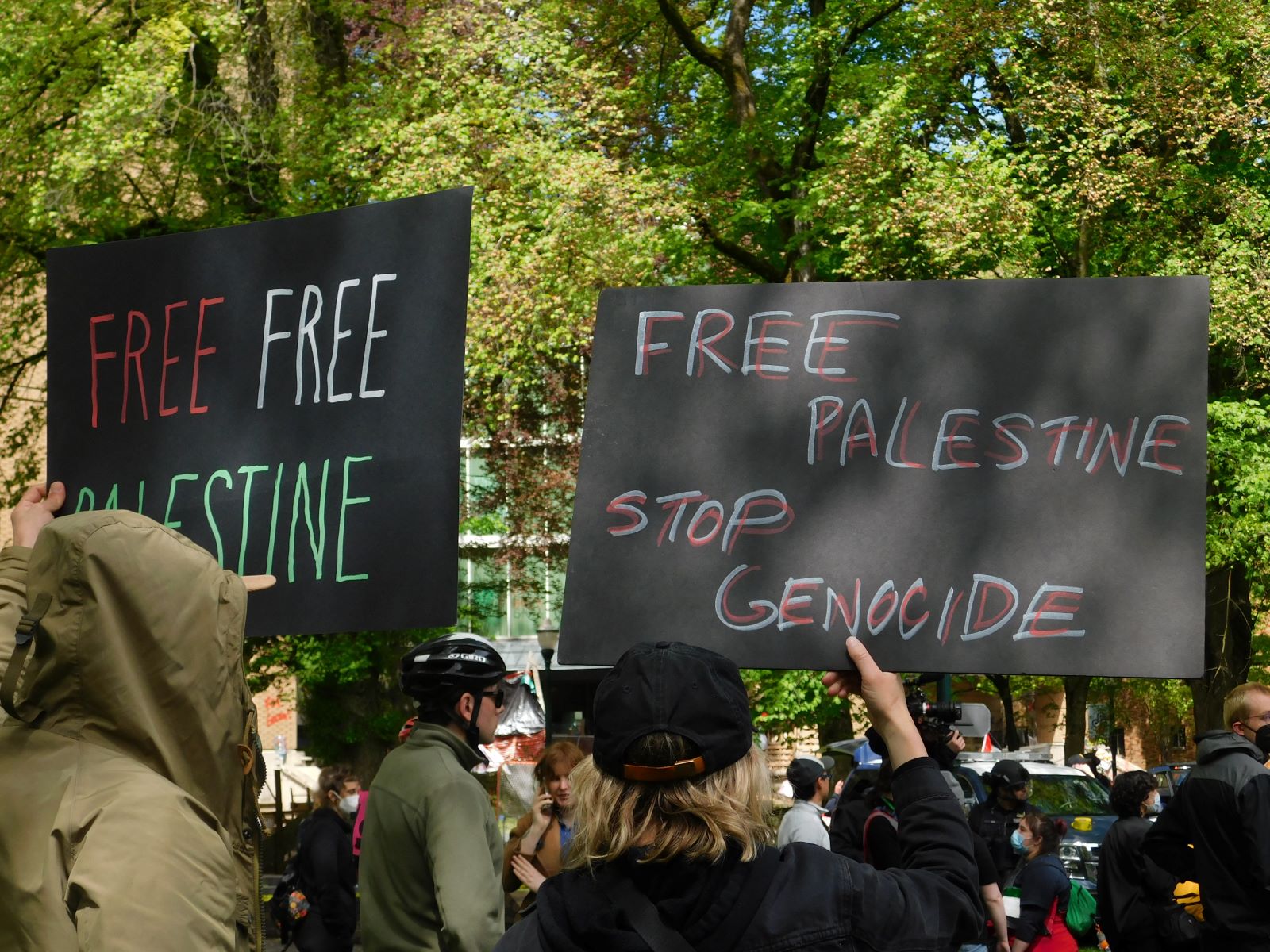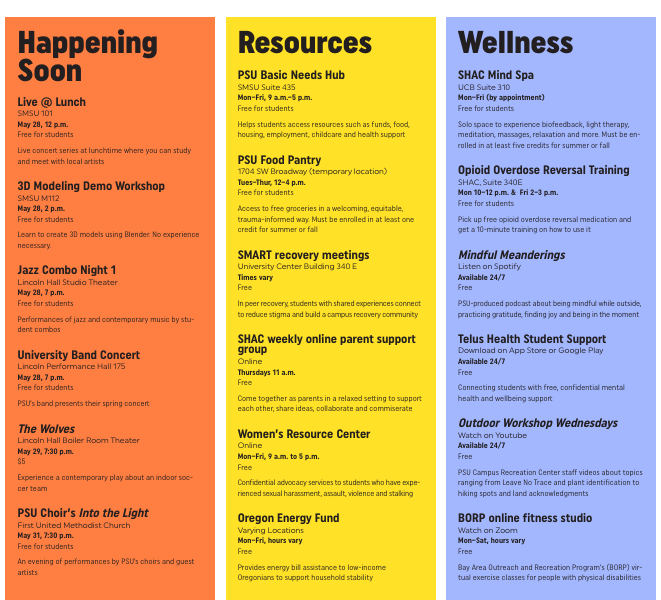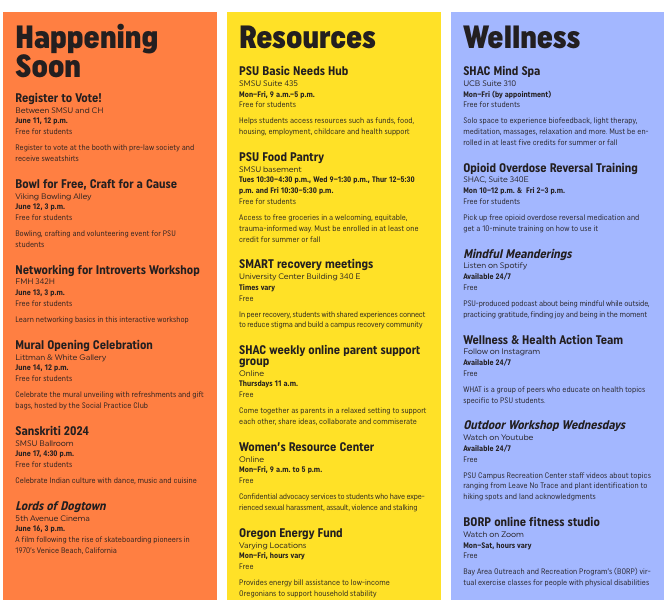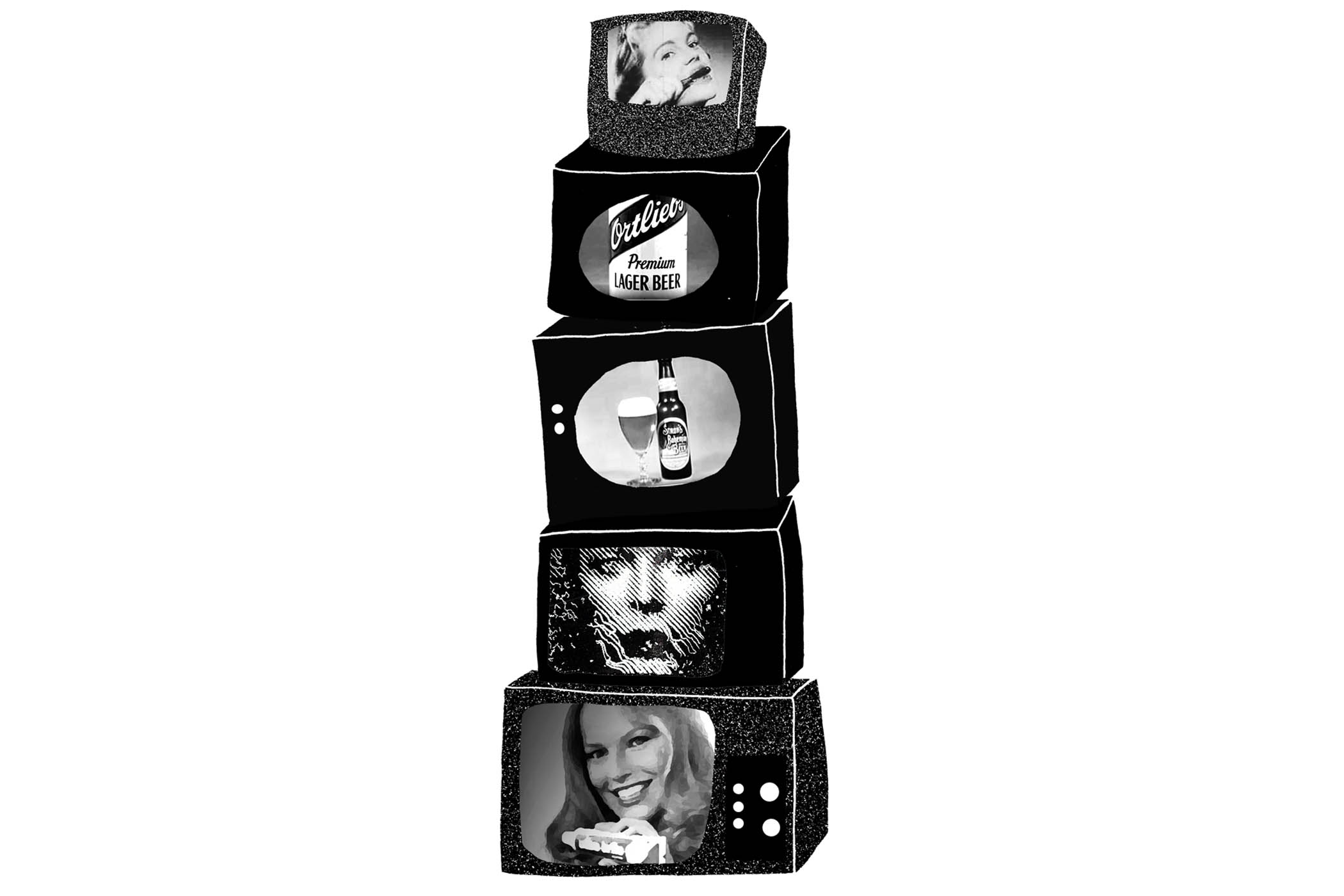As I type this, Columbia University has called in a militarized police force to brutalize, silence and terrorize the very students it’s obligated to protect. I propose that, as we advocate in the name of Palestine and push for divestment, we should also push for an end to all colonial occupations and white supremacist institutes, including the very concept of academia.
It’s vital on the liberation front to refrain from negotiating with oppressive institutes or states and stand firm in our demands. Recently, Brown University protestors disassembled their encampment after agreeing with the administration to push talks of divestment to Oct. 2024.
Knowing how institutes have operated in the past and their tactics to muzzle movements, it’s clear that the school intends to spend the summer enacting policy to stop future encampments and protests.
If Brown University intended to vote yes to the students’ demands, they would do so now rather than postponing it for five months. Rather than using the master’s tools—in this case voting—we should demand an immediate divestment by any means necessary.
Student protesters have been met with the most heinous acts of violence, with Black and Muslim students facing the brunt of it. Videos have surfaced of Arizona State University police removing a Muslim women’s hijab. At the University of California, Los Angeles, videos were captured of Black students having the N-word spewed at them by Zionists.
We should remember that Zionist racism and white supremacist ideals directly affect Black people, demonstrating that Zionism expands beyond the borders of Palestine. Zionism isn’t just forcibly establishing a homeland in the name of Jewish people, but also enforcing the pure intolerance of others, aligning with violence against Black people.
This is an even stronger reason for us to combat Zionism head-on.
The brutalization and humiliation of Black and brown students by Zionists remains a reminder to us that, during protests, white allies must utilize their privilege and place themselves at the forefront.
It’s crucial that, in our liberation fronts alongside Palestine, we center dismantling anti-Blackness as it is pivotal for white supremacy to function and for colonialism to operate.
We must analyze whiteness and our attitudes about Black people as we know them and recognize that whiteness, as constructed in the imagined racial hierarchy, exists exclusively in opposition to Blackness.
The way that Black people are defined in the white consciousness mirrors the way that Palestinians are defined in the Zionist consciousness.
The broad pattern of anti-Indigeneity harbored by white supremacist colonial projects can be seen in both of these cases, with settler-colonists viewing the cultures and religions of colonized people as savage others. This attitude allows white settlers to excuse the colonial crimes committed in their name as retaliatory or paternal, and more effectively dehumanize the colonized subject.
As it’s been emphasized that all of our struggles are connected, we should use the current momentum to extend the mic to those facing similar atrocities as we see in Sudan, Haiti and the Democratic Republic of the Congo. We shouldn’t “not now” each other, but instead formulate ways to incorporate all the issues we face in the struggle for liberation. Rather than centering our focus on a single cause, we should instead mobilize for a global, anticolonial resistance movement.
New York University (NYU) has ties to the United Arab Emirates (UAE) which funds the Rapid Support Forces currently carrying out genocide in Sudan. Students should advocate for the divestment of NYU from the UAE.
As we witness violence against student protesters, there’s also dialogue to be had surrounding how the most impoverished remain patient zero for police tactics. The sweeping of encampments by law enforcement directly mirrors the sweeps done to our houseless communities in the United States. As we advocate for divestment by setting up tents, we should remember those who resist houselessness daily and face the brunt of sweeps.
The New York Police Department—along with numerous other police departments across the U.S.—employs extreme violence against student protestors, utilizing protest suppression and counterinsurgency tactics exchanged and developed in concert with the Israel Occupation Forces (IOF) through joint training operations, as reported by Amnesty International.
In the way that IOF terrorizes and violates Palestinians, we witness the same done to Black people here in the U.S. With the expansion of cop cities across the nation, we must remain cautious of politicians and investors promising us that the militarized centers exist for the benefit of public safety.
Between the increased surveillance explicitly targeting Black people and the continued trend of land grabs from Indigenous Americans, it is very clear that cop cities exist to continue the subjugation of Black and brown people under the guise of public safety and preserving a non-existent democracy.
Post-2020 Black Lives Matter (BLM) protests, we see conditions for Black Americans largely remain the same. If anything, police have gained an increase in funding, opposite to the call of demands to defund and ultimately abolish the police.
Ultimately, BLM’s shortcomings as a movement come because the bourgeoisie swiftly co-opted it and then sold it back to us in the form of symbolic concessions. Through Black celebrities and Black politicians alike, the radical demands of the BLM were sanitized and re-introduced to the community—not as revolutionary action, but as a set of consumer ideals comfortably within the colonial market economy.
Similarly, we’re seeing attempts at co-opting the movement, with politicians who continually fail to show meaningful support for Palestine now providing speeches to students at encampments.
The consumerization of pro-Palestinian activism is also reflected in influencers, grifters and opportunists, such as Shaun King, who hosted a paid-entry Ramadan Iftar. Shortly after the announcement of the #Blockout2024 trend—a movement committed to blocking celebrities who’ve remained silent on genocide—celebrities like Lizzo immediately posted in support of the Democratic Republic of the Congo and Palestine.
Even Angela Davis—a former Black Panther Party member and activist—appeared at the Auraria Campus encampment in Denver. While some hold Davis’s appearance in high regard, I struggle to see the relevance of her presence given that her politics have drastically shifted. Davis has pivoted towards a more neoliberal framework.
Back in 2020, Davis backed President Joe Biden, which makes one wonder how a former revolutionary Marxist can endorse a genocide-profiting liberal who’s openly supported Israel throughout his political career. Rooting for Democrats, in general, receives a major side-eye, seeing as how they’ve continued to leverage abortion rights above our heads and failed to address community issues, such as the water crisis in Flint, Michigan.
I feel as though we are holding onto the radical Angela Davis, the Communist-Party-member version who stood trial in the state of California. We need to take the initiative as a community rather than operating on symbolic nostalgia and depending on leaders to drive movements.
Back in March, I had the opportunity to be an audience member of Davis’ “Apartheid, Prisons and Capitalism” speech at the University of Oregon. Recording was forbidden, but I recall that Davis reminded the audience that she was simply a member of the Black Panther Party during her speech. This serves as a reminder from Davis herself not to idolize activists or public figures.
Imperialism is a brutal force with the intent to take from, instill fear and conquer others. Imperialism advocates for nations, and this demands our immediate attention. We need nothing short of the abolishment of all these oppressive systems. Anti-Blackness and patriarchy exist as limbs on the body of imperialism.
Rather than allowing institutions that benefit from these harmful systems to placate us and boost rhetoric of equality and justice, we should hold them accountable to these words and demand actions that show their lies. A multifocal, anti-colonialist movement would not only bring us towards creating a more just world, but it would unite whole diasporas.






